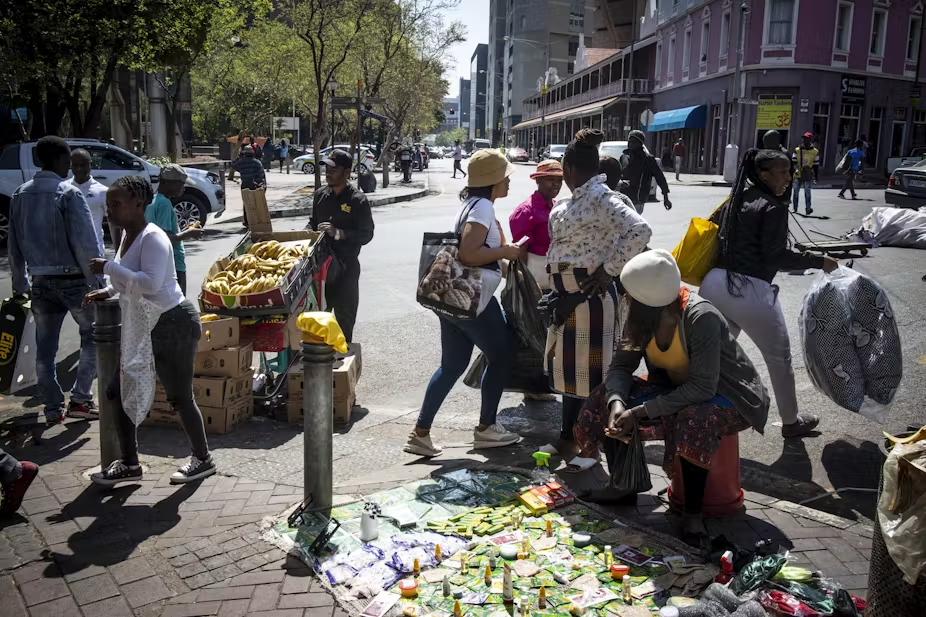Meta Description: Serious challenges of gender-based violence and femicide persist in South Africa. Learn about the response of the country to protect women and create a safer future through awareness.
Gender-based violence is an acute phenomena globally, but in South Africa, it is deeply rooted as a social ill. Referred to by many as a “silent pandemic,” violence against women and girls holds sway over the community in every province of the country and over people from all walks of life.
South Africa has acknowledged the problem and put legal frameworks in place to address it. But many women still continue to face threats to their safety, dignity, and equality. This article will bring out the realities, responses, and how to go about it— focusing on how change is possible, that is, community, policy, and collective action, always with a spirit of hope and compassion.
What is gender-based violence? Gender-based violence is harmful acts against individuals because of their gender, often inflicted on women and girls, varying from physical, emotional, and psychological to economic harm.
Femicide is the extreme expression of GBV. It is the intentional killing of women because they are women. It is not only a criminal act but also a manifestation, at the deepest level, of social and cultural inequalities, gender disparities, and the ineffectiveness of protection mechanisms.
In 2022/23, more than 150,000 cases of violent crimes against women were reported, noted the South African Police Service. These included assaults as well as domestic violence and other abuses.
One report recently brought to the attention of the Department of Justice indicated that one woman is killed every four hours on average in South Africa. This figure ranks among the highest in the world.
The reporting incidents, especially when victims were isolated from their support systems during lockdown, has heightened even the COVID-19 pandemic. This would be considered a very sensitized statistic; however, most cases go unreported-because of fear, stigma, and distrust of justice systems.
Community support, awareness, and safe spaces are now needed even more.
What is the driver of gender-based violence?
Root causes of gender-based violence have to be understood to effectively combat the malady. Experts have highlighted a few of these:
• Cultural and traditional male dominance
• Economic dependency, leaving a vast majority of women with no other alternative
• Earnings related to the same
• Education on the relationship between both partners
• A general system of support for the survivor
• Reporting and accountability through legal action
It is important to note that violence against women is not considered a private issue. It is a result of broader gender inequalities and should thus be a matter of concern for the entire community.
Government and community response
In the past years, some important steps were taken by the South African government to fight gender-based violence and support the victims:
1. National Strategic Plan on Gender-Based Violence (2020-2030)
This 10-year action plan will prioritize the following:
• Prevention through education and social change
• Legal responses and accountability
• victim-empowered support services
• Investment in community-led solutions
2. Specialist courts and legislation
Public awareness campaigns have long been a beneficial strategy aimed at educating and sensitizing the public on various aspects of sexual offenses. There are also reforms that have led to the Domestic Violence Amendment Act, which gives the victims more protection by prohibiting and suspending the respondent from contacting the applicant online.
Initiatives like the 16 Days of Activism for No Violence Against Women and Children would change public attitudes and show that the importance of standing up to abuse is not just during the campaign period but throughout the year.
Though policies and laws are essential, the actual real change often begins at the community level. In countless numbers and all across the country, individuals and organizations are working to build a safer environment for women. This is possible through:
• Shelters and safe houses for violence survivors
• Trauma counseling and support services
• Workshops for men and boys to be the change and to show positive attitudes
• School programs that give consent, respect, and empathy
A notable instance would be a Cape Town-centered drive that trains community champions to spot early indicators of domestic dissension and to help link families to resources—before the situation worsens.
The Place of Males and Youths
A developing aspect of the talk around gender violence relates to involving men as partakers. Instead of seeing the issue as one that pertains to women only, many groups are in the process of remaking male identity—emphasizing empathy, accountability, and literacy of emotions. Campaigns like Men Championing Change are for getting men to speak up and also to support survivors, urging them to challenge the harmful behavior which is carried out by their peers.
Change begins not only in courtrooms and politics, but also at dinner tables, in classrooms, and at the workplace.
The Path Ahead
No sector or group can address gender-based violence and femicide in South Africa—it is a shared responsibility that requires sustained action, learning, and collaboration.
Some of the most promising ways forward include:
• Increasing access to support services, particularly in rural areas
• Train the police and criminal justice officials in approaches that are sensitive to survivors
• Empower women economically so that dependency reduces
• Create safe channels for reporting with respect to privacy and dignity
• Celebrate stories of survival and recovery to inspire others
It is also important to listen, by hearing the survivors, the advocates, and the communities, ensuring that the policies reflect real-life needs and experiences.
Gender-based violence and femicide continue to be major challenges in South Africa— but so is an increasing commitment to change. Through blending legal reform with community engagement, education, and the country’s empathy, it can move into a future where all women will feel safe, valued, and empowered.
First and foremost, this is not just a fight for women— this is a call for a better society for all.
